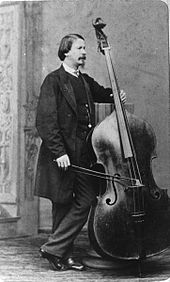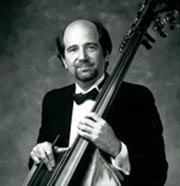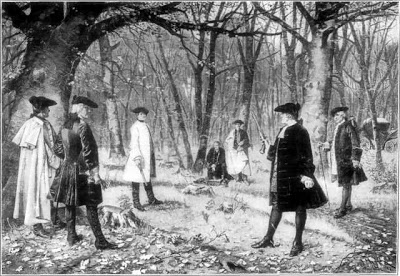In a few days’ time I will conduct a concert featuring the first movement of Giovanni Bottesini’s second concerto for double bass and orchestra, which truth be told is not much of a piece, but it’s better not to mention it since bass players have so little anyway.

This piece, I’ve come to find out, does not exist in an orchestral form handed down by the composer – if there ever was an original orchestration, it has been lost. All that remains to posterity is a piano transcription (which may or may not actually be from the composer’s pen).
It would seem there are as many arrangements of this piece as there are recordings, however, the only arrangement I was able to come by was written by a bassist/orchestrator named Norman Ludwin.

Mr. Ludwin’s biography indicates that he is currently employed as an orchestration teacher. If this piece were a freshman orchestration assignment, I would give it an F. Not one chord is voiced correctly, nor is there any attempt made at logical voice leading. Bars have been copied and pasted willy-nilly between parts with no regard to register or playability. Enharmonic spellings are but a sick joke.

One such page of this drivel with my extensive corrections
How many ways can I dis-repudiate this mingle-mangle of an orchestration? It is a hack-job by a scape-grace. It is the work of an author who could not tell a perfect fifth from a pig squeal, nor an E-flat from an earring. It is slap-dashery of the highest order.
A glance at his biography tells us that Mr. Ludwin, after a long career as a professional bassist, decided to return to school to better his skills as a composer/orchestrator in 2003, finally earning a doctorate in the field in 2007. His imdb profile profile even indicates that he worked as an orchestrator on two superb film scores (John Carter and Super 8, both by the brilliant Michael Giacchino) (though, on films with Music Departments dozens-strong, who knows exactly what that means.)
Here I am even willing to give Mr. Ludwin the benefit of the doubt: perhaps this arrangement represents an effort made prior to his advanced education. But if this be the case, the only honorable thing is for Mr. Ludwin to remove such an offensive work from his catalogue until he brings it up to his current standards. I would not want to be judged professionally on work that I found sub-par, and have gone to strenuous lengths to improve my earlier works. It is up to Mr. Ludwin to do the same.
Until that day may come, I offer two challenges:
1) I hereby offer my services as an arranger free of charge to anyone who would like an original orchestration of the Bottesini bass concerto, if only in the hopes of siphoning away funds from this street mountebank.
2) Should Mr. Ludwin choose to defend his work, he will have to do so on the field of honor, for I hereby challenge him to a duel, with pistols, at dawn on a day of his choosing. I do so in defense of the dignity of the musical arts.
